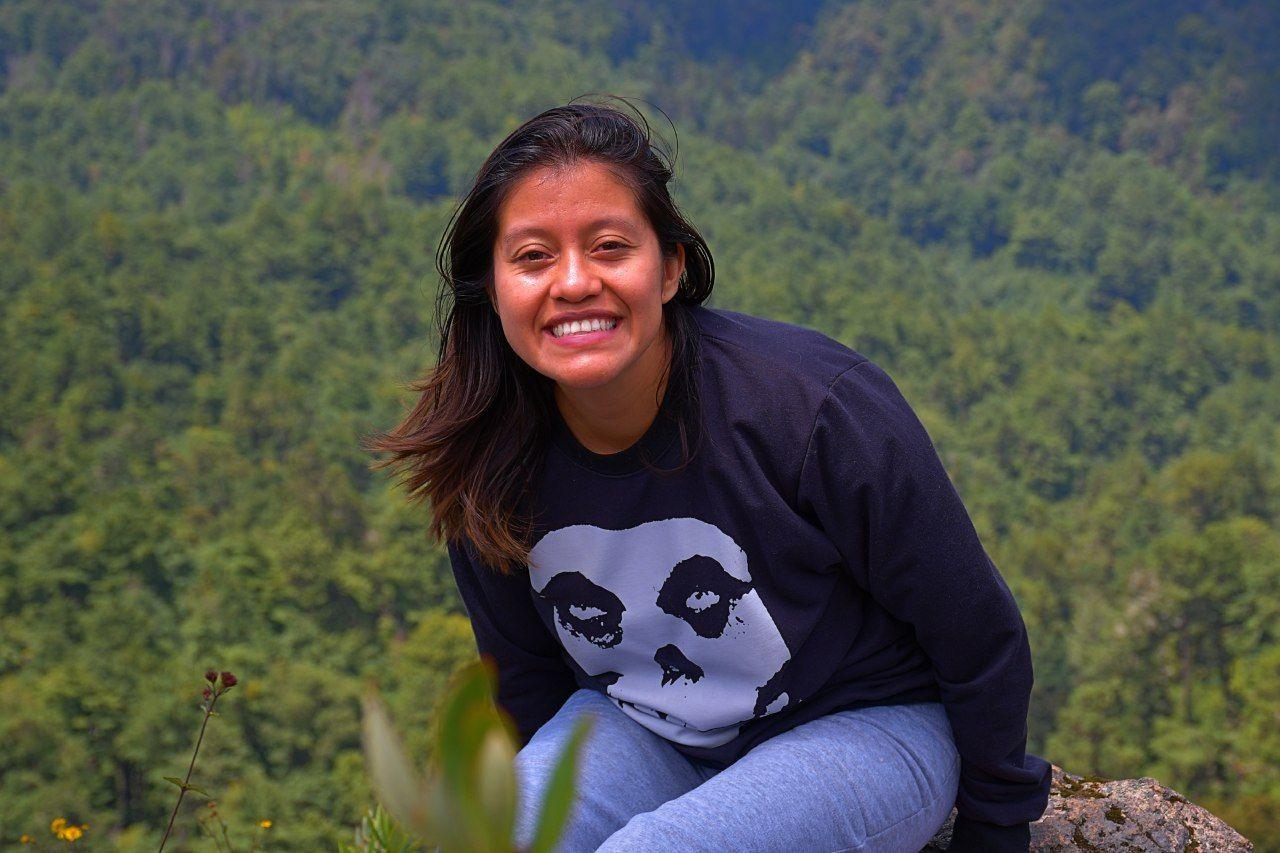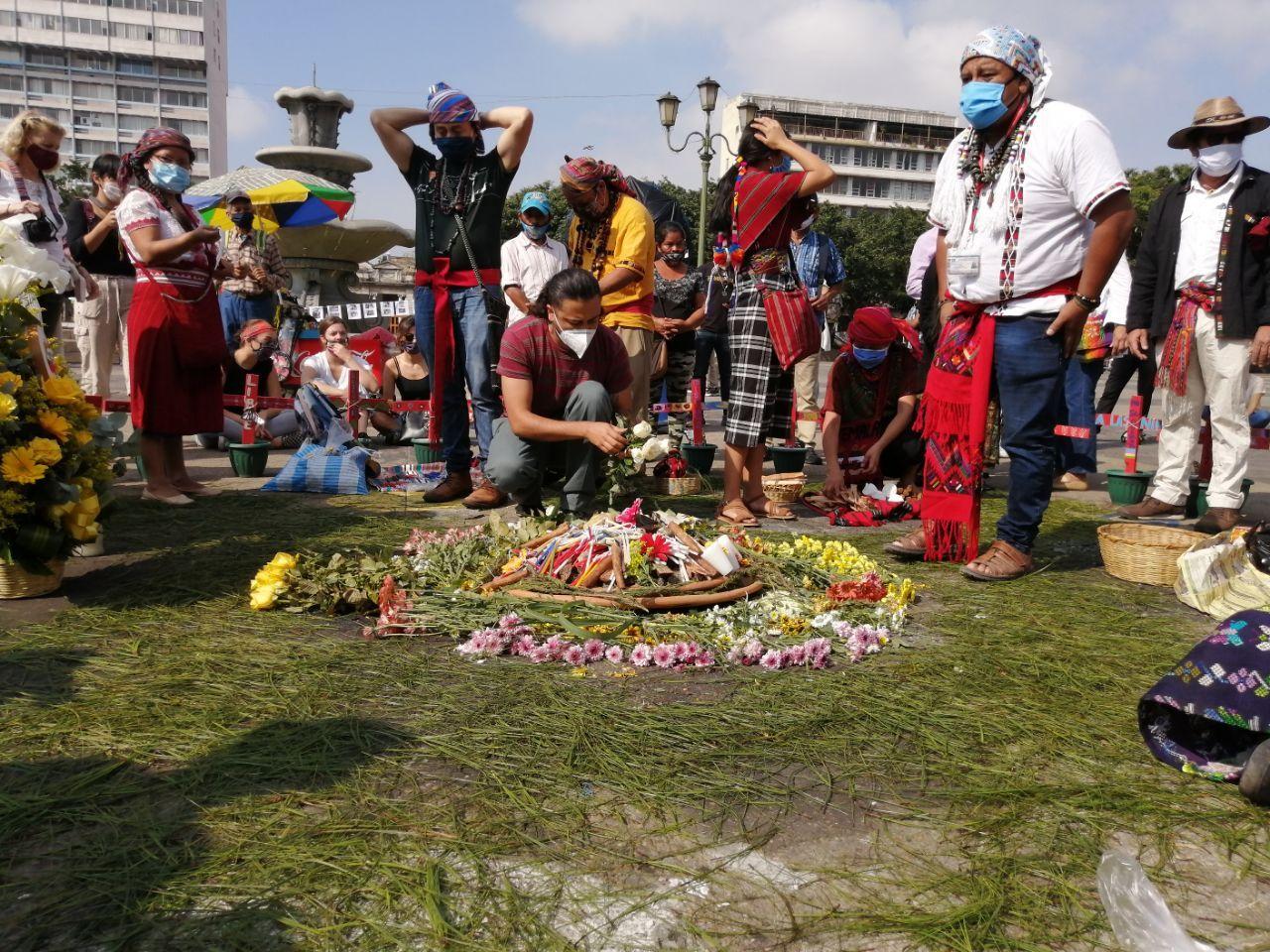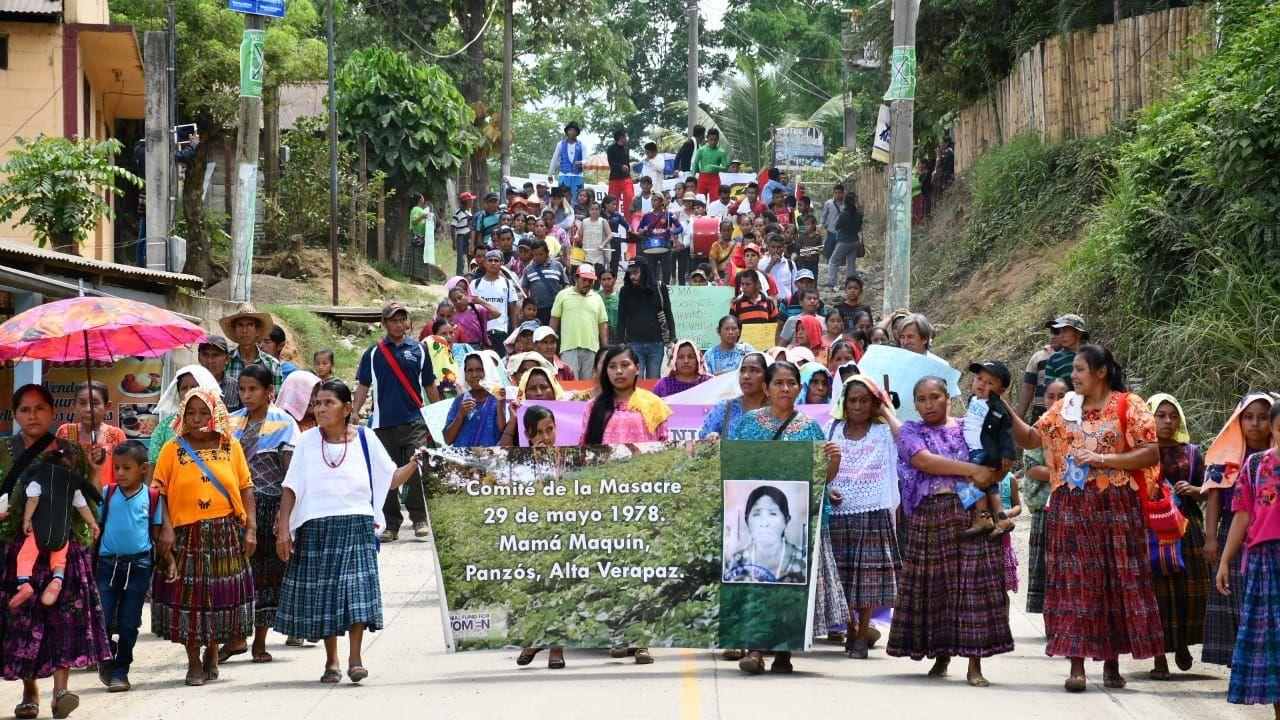Things haven't stopped happening in Guatemala, says Lucia Ixchiu. “On the contrary, extractivism, illegal logging and a lot of events related to the destruction of the environment were enhanced during the years of the government of Alejandro Giammattei and those of Jimmy Morales, when the dictatorship began in the country.”
Lucia Ixchiu is an indigenous K'iche activist and cultural manager who approached journalism more out of necessity than choice. It began in 2012 after the Alaska Summit Massacre, when the army opened fire on indigenous inhabitants who were members of the 48 Cantons of Totonicapán who were demonstrating against the increase in electricity due to the privatization of energy. The result was seven people killed and 70 injured.
The national media coverage of the massacre had a racist discourse against the demonstrators, whom it left as “Indians against progress,” Lucia recalls. So he decided to promote Solidarity Festivals, which in the beginning was an art collective, as a means of informing the stories of mining companies, monocultures, illegal logging, among other problems that were then not visible or that criminalized the peoples who opposed it.
“There were very few of us who documented land defense issues. Indigenous communicators and community radio stations have documented ourselves due to the level of invisibility,” he points out.

Lucia Ixchiu in the Totonicapán communal forest. Photo: Nearby Photo.
However, with the rise of community coverage, so did repression. During the governments of Jimmy Morales (2016 - 2020) and Alejandro Giammattei (2020 - 2024), aggressions against journalists and communicators escalated.
The Guatemalan Journalists Association estimates that 25 journalists have had to go into exile in the last decade. Lucia was one of them in 2020 after a series of censorship, aggression and harassment for her work culminated in an attack and death threat by a group of illegal loggers in the Totonicapán communal forest against her and her sister Andrea.
Now that Bernardo Arévalo has assumed the presidency of the country as representative of a progressive left-wing party, there are expectations that Guatemala will change traditional politics.
“The government of Arévalo has done what it could with what it had... Guatemala is coming out of a 2017 dictatorship to this point where the country is completely destroyed. Public transport has collapsed, people are in extreme poverty and at a cultural level we had a national strike that lasted 106 days... So we can't expect Bernardo Arévalo to have a magic wand and say 'well, this is solved, '” Ixchiu points out.
There is also the advance of socio-environmental problems. The illegal logging that Lucia documented at the time continues in the Totonicapán forest where the rivers that supply water to the entire region are born. Forest loss is a contributing factor to supply shortages.
“I think that as a population it is also up to us to be realistic and to have patience, especially people who are in exile because obviously we want to return. We know that the cases are spurious. We know that we haven't done anything wrong because telling stories is not a crime and the work of making realities visible should not be criminalized. But we should continue to commit to patience, because there is still no clarity of being able to return,” says the journalist.
Reporting from exile
Lucia applied for political asylum in Spain in 2020 and that same year, in the midst of the Covid-19 pandemic, she left Guatemala together with her partner Carlos Ernesto Cano.
“When we arrived in Europe, we realized that a lot of people didn't know that Guatemala existed,” Ixchiu recalls.
Although faced with that there was a challenge to continue her documentation work, the journalist recalls, she saw it as an opportunity to tell in other parts of the world what was happening in her country. So they looked for dissemination spaces and continued to publish remotely at Solidarity Festivals.

Photo: Nearby Photo.
“Many of the people who are in Guatemala have criticized those of us who have gone into exile, and that is also one of the greatest pains we have had to face. They have called us cowards, there are even people who are able to say that we are on vacation, that we are walking around the world and that is a level of violence, of discrediting your work, your life”, he shares.
In addition, Lucia is also an artist, activist and journalist. Human beings are multifaceted, we have diversity, he says. However, that has also been discredited for his work.
“I have heard many times, even in independent media, that I cannot be a journalist because I am indigenous and things like that, while I have seen that many journalists justify themselves with indigenous ancestry to be able to enter scholarships and receive this type of support,” says Ixchiu.
Even so, she is convinced that telling stories and reporting from the perspective of native peoples is a path that has been built for centuries and is bearing fruit as she sees more indigenous women journalists and young people interested in communicating through social networks.
Regarding the future of journalists in Guatemala, Lucia has actively participated in reporting on the case of journalist José Rubén Zamora, sentenced to 6 years in prison for an alleged crime of money laundering after a flawed trial.
When Lucia is asked about possible reparation measures for what she has experienced, she takes a few moments to mediate her response. “Actually, let's just say that no one had asked me about reparation measures in my life,” he admits, acknowledging that the last time he thought about it was after the Alaska Summit Massacre.
“I have always said when our rivers are going to return to us, when the trees that were cut down, the land that was stolen... because for me those are the reparation measures. The Guatemalan State kidnapped and stole my freedom to be able to be in my own territory, so when I can recover that freedom to be and exist in full, I think that is the greatest measure of reparation,” he concludes.



Comentarios (0)